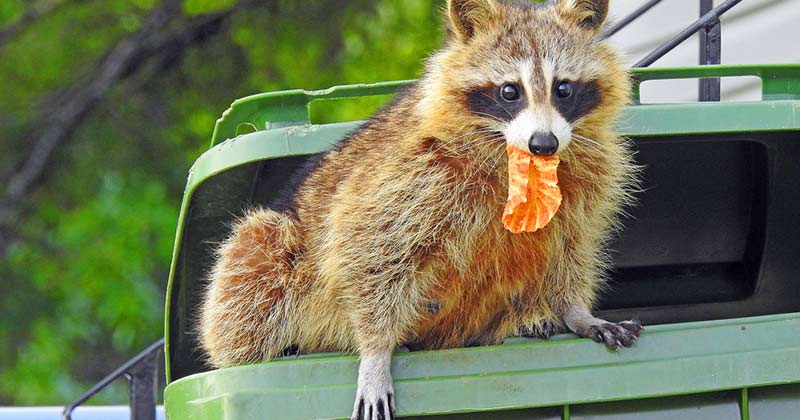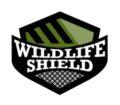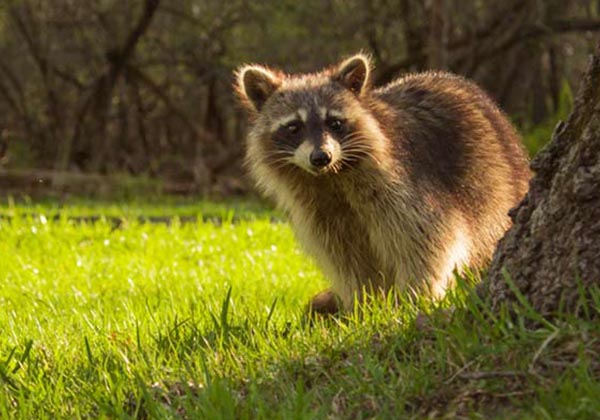Raccoons are supposedly carnivores but especially in the winter, they may have to succumb to eating roots and berries and nuts like squirrels, rats and mice. However, their natural state is the same as humans. As a fisherman. The raccoon is very fond of water and they can indeed swim in it as long as they keep their head above water. They fear any water they cannot see the bottom of so your pool is open access to them and they have no idea it’s filled with chlorine. So expect to find a dead raccoon floating in your pool the next morning. This is very serious as all living things void their bowels when they die. That means the water and filters in your pool are filled with living spores of raccoon roundworms. A deadly parasite that can be controlled, but has no cure. If you are worried an animal is living on your property. Once you see it regularly and recognize it as an individual and not just a similar raccoon wandering your property then you may want to try trapping. The option of trapping is very much not humane. There is a good chance the raccoon will die in the cage from a lack of food. So make sure to prepare the trap properly. If the raccoon can grab the food and run it may be able to avoid activating the trap. But if it feels safe and calm, it may make a mistake and end up getting trapped. The way to do this is by leaving food on an aquatic plate. Fish is good, and shellfish like shrimp are better. The stronger the smell the more likely the raccoon is to walk into the trap. Raccoons often dip their food in the water. Some people believe they are washing it but if you have ever been to an eating contest you will know that dipping food in water makes it easier to digest and swallow. This is why raccoons wash their food and why a bowl of water should be left in the cage as well.

If you are successful then the next step is both dangerous and can be, if you take the raccoon too far, illegal. A professional trapper can take them anywhere, to a wildlife reserve a hundred kilometres away or just to a local park. They know where other raccoons live and what this raccoon needs. If you want to trap it yourself then you can but you cannot take it further than one kilometre and you must release it in a natural place like a ravine or public park. Doing this is dangerous. The animal may be angry and may attack you. Stand behind the cage and open it from the front. Then back away and the animal should leave and vacate without harming you.

